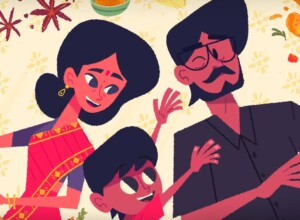I think I would because the very idea of loss terrorizes me. More so of those I care for, than my own. It might sound a little dark or even bizarre to be sure of something in regards to death. But when I think about it, the possibility of the feeling of loss is too huge to bear, and its better that its replaced by no feeling at all.
Spoiler Alert: This feature contains massive spoilers from the following games: Wolfenstein: The New Order, Brothers, Mass Effect, Heavy Rain, Fallout 3, Metro Last Light among others, and if you are reading this alert, some vague consequences may already have been inevitably spoiled.
Unconsciously, in the past couple of years that has been true for the games that I have played. They have tested me in several diverse ways, easing me into the comfort of camaraderie and then pushing my companions off a cliff while I choose to watch or do something.
First off are unavoidable scripted deaths. Take Wolfenstein: The New Order for instance, I saved Fergus on my initial playthrough and consequentially had Tekla as a fellow refugee. She was so twisted and vulnerable and exact that I instantly got infatuated. She would shoo me off her room – where she would be alone, devising a plan – but I would still linger, only to listen to every bit of dialog she would say in convincing me to leave her alone. My brief interaction with Tekla was a trap, set to make me care, to make me helpless and eventually to induce a feeling of loss. I was more torn when she died than I was when BJ Blazkowicz did. I was more revengeful when I killed her killer than when I killed the final boss, who eventually killed me (Blazkowicz).
What fascinated me is that I did not really care if BJ lived, because I was conditioned to expect him to respawn when he died, it wasn’t even like the Souls games where death had gameplay consequences. Furthermore, I was pretty devastated to see Max Hass cry when Klaus died later, because someone I cared for (Max Hass) was experiencing loss, which as it happened was equally heavy.
Apart from deaths that have to occur like in Wolfenstein, second are deaths that are avoidable and might be too stirring for the psyche. For example in Metro Last Light, I spared Pavel (that betraying bastard) and was daring through the game to save the little Dark One from harm. But then when it came to Artyom’s death (in the supposed unfavorable ending) I was callous about the whole affair.
The most interesting of such “them versus you” dilemmas that deal with death was created by the ending of Fallout 3. Wherein you choose to either die yourself and save the world or send an NPC to do your bidding. Result: a punch to your conscientious gut. Needless to say, I sacrificed my playable character, because that is how detached we sometimes become with the ones we control.
With the underlying concept of most video games being the need for survivability; we know checkpoints exist or a game can be saved and/or the protagonist can be almost infinitely resurrected. Thus our attachment to our protagonists is rather cosmetic. This however is not true for the NPCs that we care for (at least in the games that dare to have NPCs that can be stabbed to death a la Fallout or Dishonored). I am pretty sure a Mass Effect player cared for one of their companions more than Shepard himself. And maybe that is why you went into the suicide mission thinking I hope my companion (Thane for me) survives this, without a serious thought if Shepard dies himself.
Such detachment is not a constant however; there are times when a game provides such challenge that death of the protagonist comes extremely feared. For example in Spelunky where you don’t want your spelunker to die. But that too is not an emotional reaction rather it is due to the gameplay that thrives on avoiding death.
Death of the hero is no more a trope, it feels almost like a crutch to cease the action and justify the advent of a conclusion (reminds of Desmond Miles and his horribly justified death at the end of Assassin’s Creed 3). By its very nature the protagonist’s death feels at odds with everything the game has been trying to achieve till then, rendering the entire game’s efforts futile. Its simply: save the world except you are no one’s world, thus not worth saving.
Maybe this is an incidental analysis of the handful of games that I have finitely experienced death in. But as it turns out, there doesn’t seem to be a perfect game-design solution to this death conundrum wherein one can care for a protagonist, while also fearing their loss more than anything else. Or is there. A glimmer of hope in this department is Brothers: A Tale of Two Sons.
By giving you control of both the brothers at the same time, the game makes you treat them as a single unit. And eventually the game kills one half of that single unit. You are left asunder (I cried my worst due to a video game, peeking all the time over my shoulder hoping no one enters my room and watches me, and thinks: ‘Aren’t games supposed to be fun?’). The images that followed were most heart-rending: a lonely brother, a helpless father, a family shattered. I never before felt the need to rewind, to go back to totality, not with Blazkowicz, not with Artyom, just the brothers.






